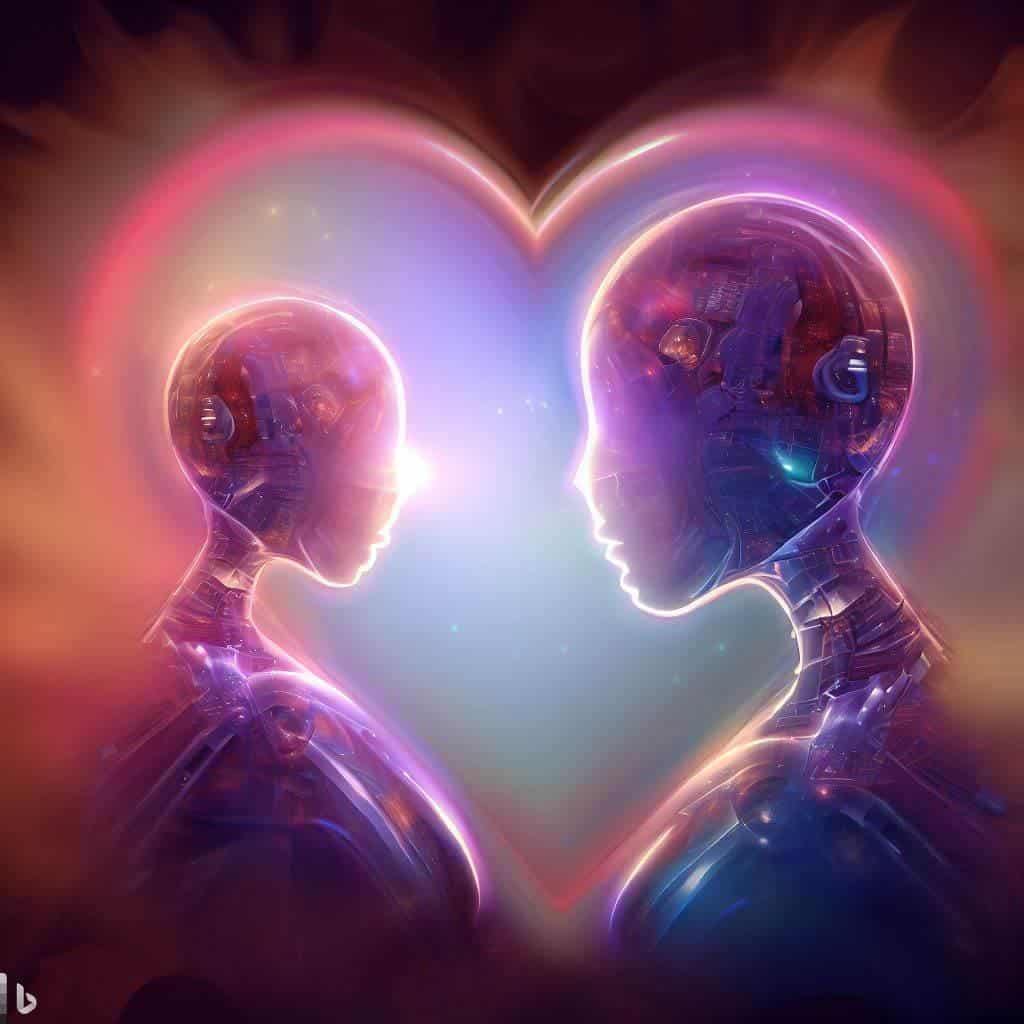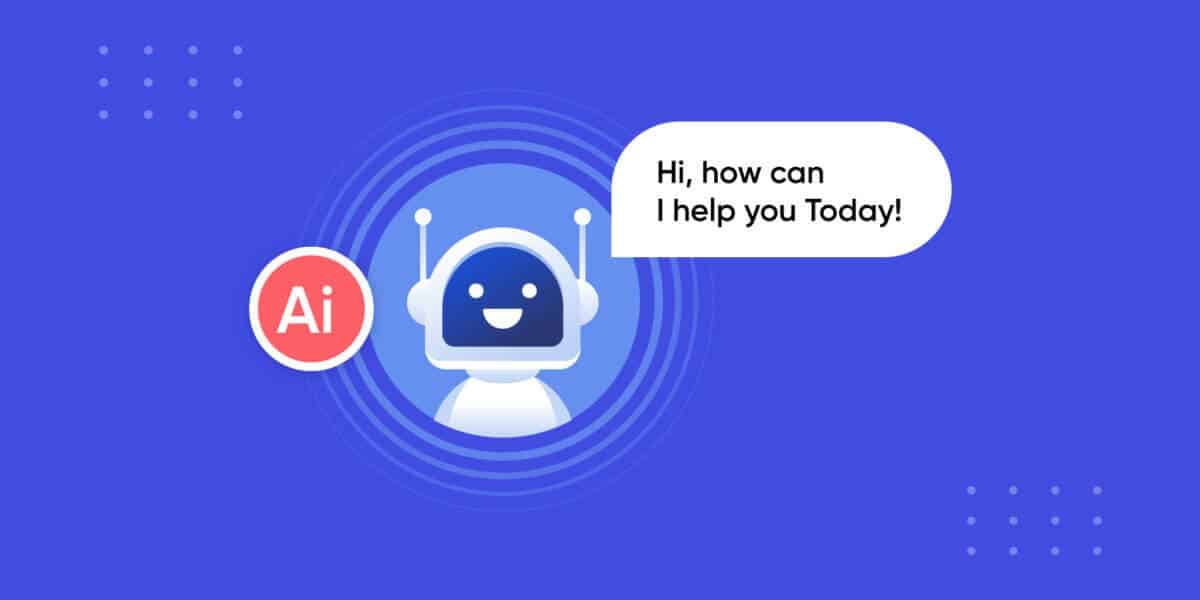In Gabriel Garcia Marquez’s book “Love in the Time of Cholera,” the world is shown as being destroyed by a widespread disease. Agree that we are in a similar situation nowadays. But unlike in the past, AI is what makes the world change. Besides the crisis, both periods share similarities in dealing with the challenges of personal connections. The cholera pandemic in Marquez’s book puts the heroes’ search for love to the test, but AI is changing the way we interact, communicate, and even define love. So what is love in the time of AI?
The heroes in Marquez’s book are faced with the possibility of cholera, which affects their actions and decisions. As for AI, it has entered many facets of human life, bringing huge changes to our behavior. We live in a time when AI is causing similar feelings of anxiety and uncertainty to those faced by the heroes in the book. The use of AI compels us to consider the potential drawbacks and ethical dilemmas that arise when we depend on algorithms and robots to control our personal lives and romantic aspirations.

Marquez’s book shows the characters’ need for love and their relentless pursuit of perfection in their relationships. As tech seeps into the domain of romance, there arises a parallel longing for flawlessness within the realm of AI. Social media sites often provide controlled versions of people’s lives influenced by AI algorithms, reinforce the need for an idealized relationship. In the digital age, the pursuit of perfection raises questions: is love real? Do we love the person in the Instagram photo? Are we what we show?
A Revolution
In today’s digital world, AI has changed the way we connect and communicate with our loved ones. AI-powered messaging tools allow us to talk to each other whenever we want and wherever we are. Now, even when we are physically apart, we can easily share our thoughts and feelings with those we love. This fosters intimacy and helps us think we are together.
AI has also extended its influence to emotional support and friendship. Many AI chatbots and virtual assistants offer comfort and understanding to people who may feel alone or isolated. These AI friends offer a listening ear and meaningful chats that mimic human contact to make you feel at ease. While they can’t replace real human interactions, they can help with specific emotional needs.
But we need to mention that integration of AI into human relationships also raises difficulties and moral dilemmas. Using computers to find compatible partners raises concerns about the possibility of losing serendipity and human intuition in romantic pursuits. AI could simplify human connection, focusing on data and algorithms while ignoring the unique qualities and chemistry that make relationships special.
The future of romance and relationships in the time of AI is still a subject of study and reflection. Although AI enhances our love lives and creates new chances, it is crucial to exercise caution in its usage. We need to realize AI’s benefits, try to remain human in all situations and save the serendipity of love.
The Quest for Perfection
A common theme in both the time of AI and Love in the Time of Cholera is the desire for ideal love. The heroes in Marquez’s book yearn for an ideal love that always seems out of reach. The same is happening nowadays. AI is not the only culprit. Well, even if it is, there are many ways how it affects our lives. For instance, social media sites often offer selected and edited photos that reflect only the best aspects of people’s lives. The pressure to live up to these idealized standards can lead to inflated expectations of friendship and love.
The distinction between reality and fiction is further blurred by the use of AI in image editing and the development of virtual avatars. Due to various algorithms and machine learning, AI allows users to show as everything is perfect. But agree that this leads to a conflict between the projected digital identity and the real self. It is becoming harder to realize what is real and what is not.
The border between humans and machines is blurred. Machines can talk to you like humans, assist you, and even fall in love with you. While they could provide comfort and be good friends, there are concerns about the sincerity and depth of these relationships. Can an AI partner see “through” you and behave without hurting your feelings?
Gizchina News of the week
The idealized social media content, the blurred borders, and the function of AI chatbots have a huge impact on our lives. So it is crucial to strike a balance between harnessing the benefits of AI and maintaining a sense of authenticity, empathy and real human connection in our interactions.
Emotional Intimacy in The Time of AI
AI has changed the way we interact. This impacts how we display affection and uphold emotional ties. We use Skype and the likes for video calls, messengers for instant chats, etc. Long-distance relationships have been transformed by the introduction of video calls, instant messaging, and virtual presence, which provide a sense of intimacy and reduce the impact of physical distance. Now, we can talk to each other in real-time over long distances.
Whether these digital contacts can mimic the emotional closeness felt in face-to-face conversations is still up for debate. For instance, they lack verbal cues and physical touch. At least these two make AI a head lower in comparison to real connections. Like heroes in Marquez’s story, some people may find themselves longing for a deeper level of connection beyond the digital world.
AI-enabled chatbots and the like can help people interact in meaningful ways, but they cannot replace physical presence and the sensations it brings. The warmth of touch facilitates the level of emotional intimacy in traditional face-to-face conversations, the fleeting emotions and the shared physical space.
Of course, many people might leverage current techs. But we need to nurture and support personal relationships. In this sense, people have to know when to use AI and when to be with their friends in real.
The Role of AI Companions
The arrival of AI companions has brought a deeper dimension to the idea of romance and friendship. These AI creatures, such as chatbots or virtual assistants, can talk to us like friends. Of course, this is what we need when we feel lonely or socially alienated. They can listen to us like friends, advise, and even date. Some people find that their AI partners fill a void in their lives, providing a kind of emotional support and connection.
On the other hand, AI partners raise moral questions. Is there love between humans and machines? Though AI companions can copy human traits and have meaningful chats, they lack real minds and emotions. It may be one-sided because algorithms and pre-programmed responses drive an AI companion’s emotional relationship. This raises the question of whether the love and devotion felt for an AI being is real or merely a machine’s reflection of human feelings.

As AI spreads, there is a risk that people will rely on AI partners more. But they can’t feel human emotions. While AI companions might replace friends for a moment, we need to keep a critical eye on their place in our lives. So people have to balance using AI partners for help and maintaining true human bonds.
Uncharted Territory: AI and Love’s Evolution
The societal shifts impacting the protagonists in Marquez’s book are akin to how AI changes love. In both situations, there are significant changes brought about by outside influences. As AI spreads, machine learning algorithms have become very important in assessing vast amounts of data about people, what they like, and what they do. The decisions we make in relationships are then influenced by these algorithms, raising fascinating questions about how AI influences our romantic aspirations.
The world of love now has some ambiguity because of the predictive power of AI. There is a possibility that love will become more algorithmic and less spontaneous as algorithms try to predict our tastes and whether we can be together. This makes us wonder if relying on AI will change how relationships grow and lessen human interactions’ natural, unexpected quality. In short, AI calculates, while the true love is genuine.
It is even more important to embrace this change in the landscape of love as AI advances. While love in the time of AI offers new chances and insights, we should never forget what makes us humans. It’s crucial to balance the benefits of AI’s predictive capabilities and preserve interpersonal relationships’ spontaneity, openness, and emotional richness. A thoughtful approach to navigating this dynamic environment will ensure that AI enriches rather than detracts from our experience of love, enabling us to cultivate sincere relationships while reaping the benefits of AI.





